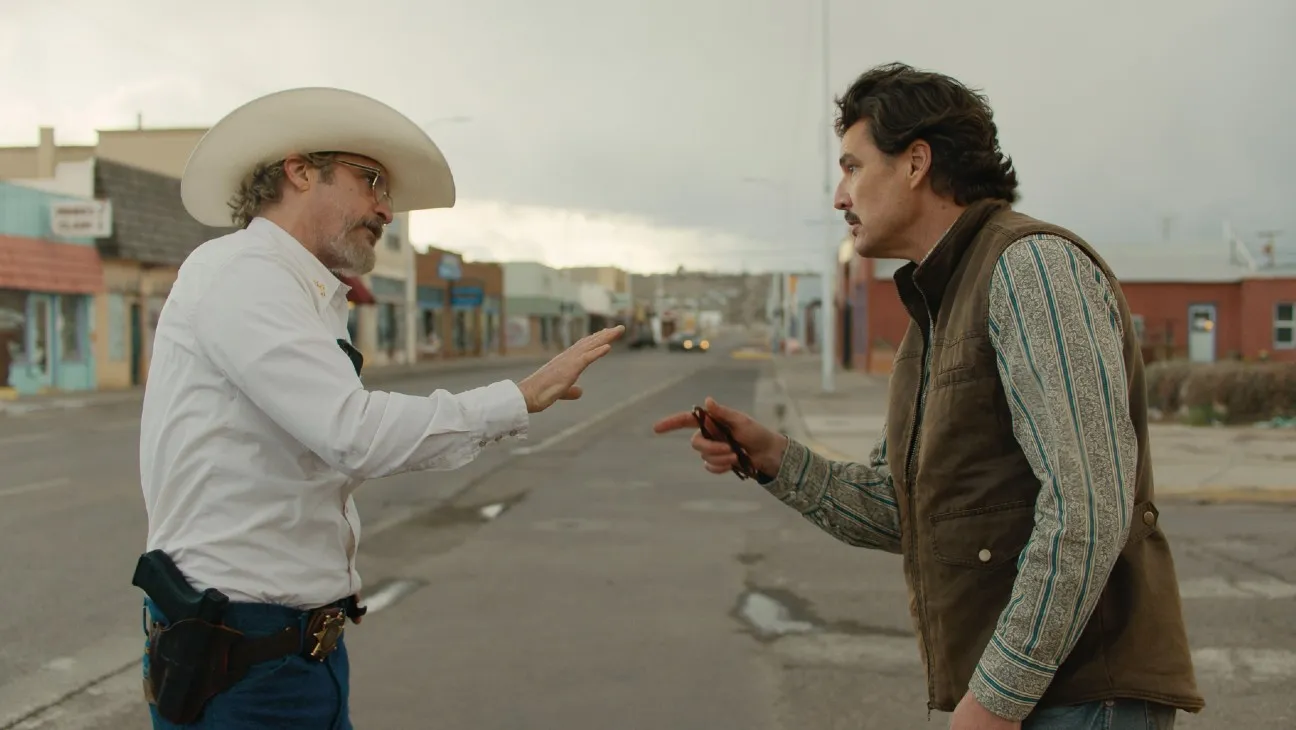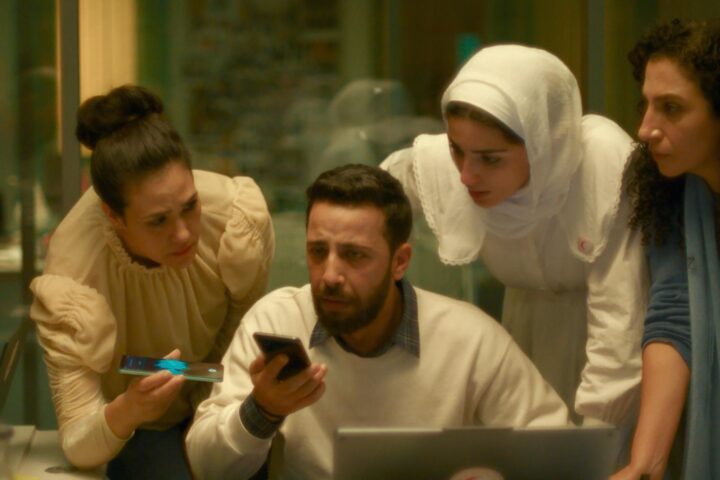Across four films, 38-year-old writer-director Ari Aster has emerged as one of the most distinctive voices in American cinema. Breaking out with 2018’s trauma thriller Hereditary and 2019’s pagan horror Midsommar, Aster took a turn with the surreal 2023 panic attack Beau Is Afraid. Tonally disparate but thematically linked, all of Aster’s films are variations on a theme of dread and collapse.
His latest, Eddington, is no exception. A horror movie in spirit, it’s also a contemporary Western and a sweeping social satire. Set during the chaotic spring of 2020, it takes aim at the crumbling idea of American unity—through the mismanagement of COVID, algorithm-fed paranoia, and a widening generational rift. If that sounds too close to home, Aster is uninterested in rehashing current events. Instead, he’s built a maximalist, sometimes grimly funny movie metaphor balancing empathy and indictment sans partisanship.
Joaquin Phoenix gives one of his richest performances (and that’s saying something) as Joe Cross, police chief of the fictional Eddington (shot in Truth or Consequences, New Mexico), a town he believes sealed off from the rest of the world. When early pandemic warnings begin to circulate, Joe insists the virus isn’t their problem—Eddington, in his view, is immune (and also to the outside world). And he has more pressing problems, namely his emotionally troubled, doll-making wife Louise (Emma Stone), carrying the weight of an unnamed childhood trauma, and his doom-scrolling mother-in-law Dawn (Diedre O’connell), steeped in political conspiracy theories.
Early on, Joe is called to remove a local homeless man (a terrific Clifton Collins Jr.) disrupting the town bar—owned by progressive, mask mandate following mayor Ted Garcia, played with exasperated charm by Pedro Pascal. Aster sets up what looks like a red-vs-blue standoff, but it’s quickly complicated by a not-so-buried history between the men, one that seems to also implicate Louise.

The mens’ rising High Noon standoff ramps up after Joe launches a haphazard mayoral bid, roping in his loyal deputies (Luke Grimes and Michael Ward) and emblazoning comically misspelled anti-government slogans on his police SUV. What follows is a tangle of ego and escalation followed by a humiliating public reckoning, effectively punctuated by Katy Perry’s pop hit Firework.
And that’s all before the film’s explosive second half, which entangles the younger generation— notably Ted’s son Eric (Matt Gomez Hidaka)—swept up in the wave of protests following the murder of George Floyd. Aster gives himself plenty of space to satirize liberal white teens and their newfound awareness of systemic racial injustice and police brutality. Unsurprisingly, Joe doesn’t take this well. Meanwhile, Louise and Dawn orbit an online cult-guru conspiracist played with wily magnetism by Austin Butler.
There’s more still: a proposed AI data center threatening the land, a murder investigation that shadows everything, and a third-act action crescendo that pushes Aster into unexpected terrain. While the scale of his narrative experiment may be massive, what stands out is Aster’s control in navigating satire, drama, extreme violence to a coda of immense irony. It’s part John Ford, part absurdist nightmare.
Despite the film’s charged subject matter, Aster never picks sides. He’s not interested in simple morality plays. What he’s really after is a writ-small glimpse of American culture and its own undoing. He’s far more focused on the psychological toll of anxiety, fear and isolation on formerly civil communities than on political outcomes. It may be his most ambitious work yet (though Hereditary still stands as his masterpiece).
As Eddington winds to its strange, stark end, it’s clear Aster has no interest in easy catharsis. There are no heroes, no villains and no solutions. What is there, then? Just a portrait of collective freefall, where we all just double down and retreat to our own little realities, to be shared. While the film’s final moments may leave some scratching their heads, that somehow feels right. In Aster’s vision, the once-thriving small town is dying, big tech is ascendant and we brought it on ourselves.
It’s a daring film and the rare American movie examination of contemporary life. It leaves a mark all right, and refuses to provide closure—but you may feel a creeping realization that Aster, on this small town big canvas, has something to say about where we are today, and why.
3 1/2 stars



